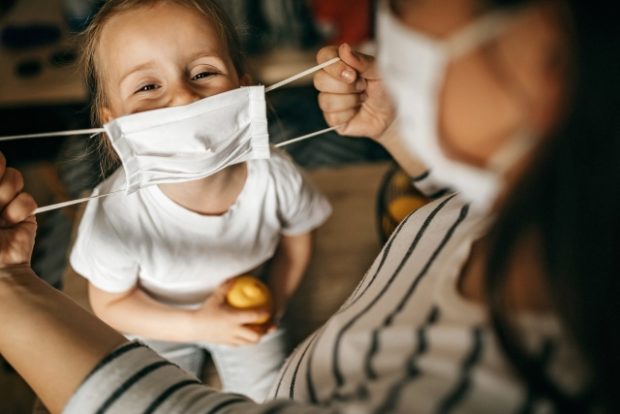Children more likely to catch COVID-19 at family gatherings than school — study

Children less likely to catch covid-19 at school than at a family gathering, the study suggests. Image: Getty Images/StefaNikolic via AFP Relaxnews.
Parents may be able to breathe a sigh of relief, as research suggested that school may not be the most likely source of COVID-19 infection among children and teenagers. According to a study led by researchers at the University of Mississippi Medical Center, in collaboration with the Centers for Disease Control and Prevention (CDC), children have a greater risk of being infected by a family member than by their classmates at school.
The study, published online by CDC on Dec. 15, 2020, is based on interviews with around 400 parents and on a list of children under the age of 18 who were tested for COVID-19 between September and November 2020.
The study has shown that the continuous efforts carried out in schools and childcare programs to prevent the spread of COVID-19 seem to be paying off, since schools were not found to be the principal source of infection. That news could prove reassuring for many parents, especially since children have been back in school for several months in certain countries, while others are preparing to reopen progressively.
Several reasons could explain this. Children could be more likely to catch COVID-19 from family members who might not be as strict with safety precautions, unlike at school. However, it could also be linked to lower rates of infection in children, making for a lower risk of infection in school settings.
In detail, the study revealed that children and teenagers who tested positive for SARS-CoV-2 were more likely to have attended family gatherings or had visitors to their homes, and their parents were less likely to wear masks. Similarly, children attending school who tested positive generally reported that other children or staff members were not taking safety measures like mask wearing.
Finally, children who tested positive were more likely to have attended gatherings such as weddings, parties, playdates or funerals. While the study is not without limitations, such as the sample size and limited geographical zone, it nevertheless showed how appropriate safety measures, when applied, remain essential in limiting the spread of the virus. CC
RELATED STORIES:
UNICEF allots $13M for children’s education during COVID-19 pandemic
Student group slams plan to allow face-to-face classes amid pandemic